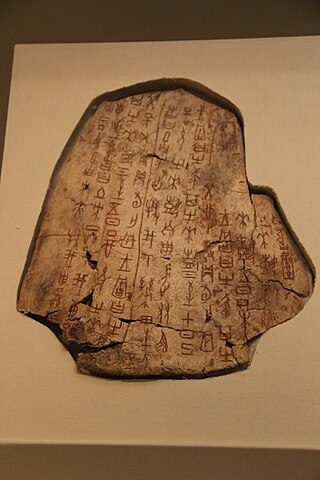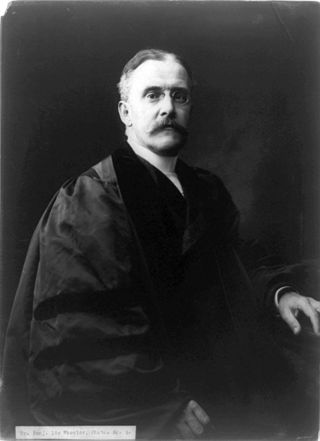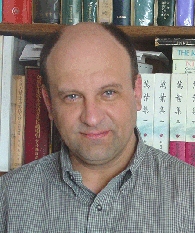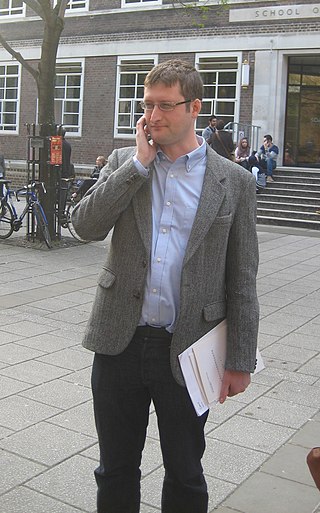Related Research Articles

An ideogram or ideograph is a graphic symbol that represents an idea or concept, independent of any particular language, and specific words or phrases. Some ideograms are comprehensible only by familiarity with prior convention; others convey their meaning through pictorial resemblance to a physical object, and thus may also be referred to as pictograms.
Philology is the study of language in oral and written historical sources; it is the intersection of textual criticism, literary criticism, history, and linguistics. Philology is also defined as the study of literary texts as well as oral and written records, the establishment of their authenticity and their original form, and the determination of their meaning. A person who pursues this kind of study is known as a philologist.

Turkology is a complex of humanities sciences studying languages, history, literature, folklore, culture, and ethnology of people speaking Turkic languages and Turkic peoples in chronological and comparative context. This includes ethnic groups from the Sakha in East Siberia to the Turks in the Balkans and the Gagauz in Moldova.

Shuowen Jiezi is an ancient Chinese dictionary from the Han dynasty. Although not the first comprehensive Chinese character dictionary, it was the first to analyze the structure of the characters and to give the rationale behind them, as well as the first to use the principle of organization by sections with shared components called radicals.

Old Chinese, also called Archaic Chinese in older works, is the oldest attested stage of Chinese, and the ancestor of all modern varieties of Chinese. The earliest examples of Chinese are divinatory inscriptions on oracle bones from around 1250 BC, in the late Shang dynasty. Bronze inscriptions became plentiful during the following Zhou dynasty. The latter part of the Zhou period saw a flowering of literature, including classical works such as the Analects, the Mencius, and the Zuo zhuan. These works served as models for Literary Chinese, which remained the written standard until the early twentieth century, thus preserving the vocabulary and grammar of late Old Chinese.

Oracle bone script is an ancient form of Chinese characters that were engraved on oracle bones—animal bones or turtle plastrons used in pyromantic divination. Oracle bone script was used in the late 2nd millennium BC, and is the earliest known form of Chinese writing. The vast majority of oracle bone inscriptions, of which about 150,000 pieces have been discovered, were found at the Yinxu site located in Xiaotun Village, Anyang, Henan Province. The latest significant discovery is the Huayuanzhuang storage of 1,608 pieces, 579 of which were inscribed, found near Xiaotun in 1993. They record pyromantic divinations of the last nine kings of the Shang dynasty, beginning with Wu Ding, whose accession is dated by different scholars at 1250 BC or 1200 BC. Oracle bone inscriptions of Wu Ding's reign have been radiocarbon dated to 1254–1197 BC±10 years. After the Shang were overthrown by the Zhou dynasty in c. 1046 BC, divining with milfoil became more common, and a much smaller corpus of oracle bone writings date from the Western Zhou. Thus far, no Zhou sites have been found with a cache of inscriptions on the same scale as that at Yinxu, although inscribed oracle bones appear to be more widespread, being found near most major population centers of the time, and new sites have continued to be discovered since 2000.

Roy Andrew Miller was an American linguist best known as the author of several books on Japanese language and linguistics, and for his advocacy of Korean and Japanese as members of the proposed Altaic language family.

Murray Barnson Emeneau was the founder of the Department of Linguistics at the University of California, Berkeley.
James Alan Matisoff is Professor Emeritus of Linguistics at the University of California, Berkeley. He is a noted authority on Tibeto-Burman languages and other languages of mainland Southeast Asia.
Edward Hetzel Schafer was an American historian, sinologist, and writer noted for his expertise on the Tang Dynasty, and was a professor of Chinese at University of California, Berkeley for 35 years. Schafer's most notable works include The Golden Peaches of Samarkand and The Vermilion Bird, which both explore China's interactions with other cultures and regions during the Tang dynasty.

Benjamin Ide Wheeler was a professor of Greek and comparative philology at Cornell University, writer, and President of the University of California from 1899 to 1919.

Alexander (Sasha) Vladimirovich Vovin was a Soviet-born Russian-American linguist and philologist, and director of studies at the School for Advanced Studies in the Social Sciences (EHESS) in Paris, France. He was a world-renowned linguist, well known for his research on East Asian languages.

Kamil Václav Zvelebil was a Czech scholar in Indian literature and linguistics, notably Tamil, Sanskrit, Dravidian linguistics and literature and philology.

Anoop Chandola is an American linguist-anthropologist, originally from Pauri, where he was raised in a priestly Brahmin family. Though his father and uncles broke their ancestral polygamous tradition he suffered from the aftereffects of polygamy.
William Norman Brown was an American Indologist and Sanskritist who established the first academic department of South Asian Studies in North America and organized the American Oriental Society in 1926. He was the Professor of Sanskrit at the University of Pennsylvania for most of his academic career. He was president of the Association for Asian Studies in 1960. He is considered the founder of the field of South Asian Studies, which he pioneered in his career over four decades at the University of Pennsylvania, where he helped to found the Department of Oriental Studies (1931), and later single-handedly founded the Department of South Asia Regional Studies (1948). These departments are now survived by the departments of East Asian Languages and Civilizations, Near Eastern Languages and Civilizations, and South Asia Studies. W. Norman Brown also founded the American Institute of Indian Studies, which was located in the Van Pelt Library at the University of Pennsylvania.

The Faculty of Philology is one of the constituent schools of the University of Belgrade. The school's purpose is to train and educate its students in the academic study or practice in linguistics and philology.
William Hubbard Baxter III is an American linguist specializing in the history of the Chinese language and best known for his work on the reconstruction on Old Chinese.

Jerry Lee Norman was an American sinologist and linguist known for his studies of Chinese dialects and historical phonology, particularly on the Min Chinese dialects, and also of the Manchu language. Norman had a large impact on Chinese linguistics, and was largely responsible for the identification of the importance of the Min Chinese dialects in linguistic research into Old Chinese.

Nathan Wayne Hill is an American historical linguist and Tibetologist specializing in languages of the Sino-Tibetan family, in particular Tibetic languages.

Charles G. Häberl is an American religious studies scholar, linguist, and professor. He is currently Professor of African, Middle Eastern, and South Asian Languages and Literatures (AMESALL) and Religion at Rutgers University. Häberl's primary interests include Mandaeism, Semitic philology, and Middle Eastern studies. He is known for his translation of the Mandaean Book of John in collaboration with James F. McGrath, as well as for his research on the Neo-Mandaic dialect of Khorramshahr, Iran.
References
- ↑ "William Boltz". University of Washington . Retrieved 2021-07-28.
- ↑ "Professor Dr William G. Boltz". Universität Hamburg. Retrieved 2021-07-28.
- ↑ Fields, Asia; Blatchford, Taylor (2022-03-06). "In survivors' words: How colleges should better respond to sexual misconduct". Seattle Times. Archived from the original on 2022-03-09. Retrieved 2022-03-09.
- ↑ https://asian.washington.edu